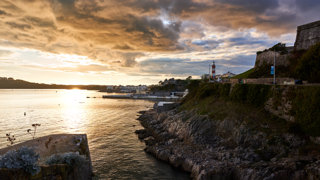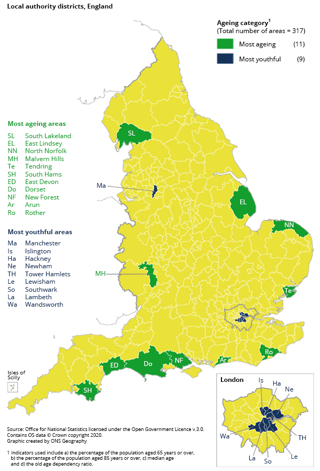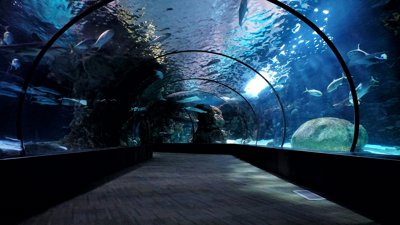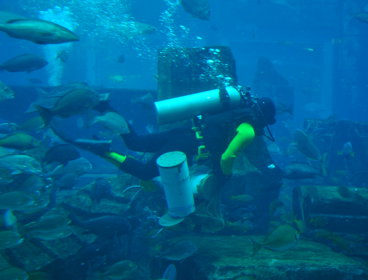Introduction
The Ocean Conservation Trust (OCT) is a charity dedicated to taking positive action in the restoration and protection of the ocean. Their mission is to help people have a deeper connection with the ocean and, therefore, make it part of their priorities in protecting our planet.
Operating out of the National Marine Aquarium in Plymouth, the OCT engages in various initiatives to promote ocean awareness and stewardship. They believe that by helping people understand and appreciate the ocean, they can inspire a collective effort towards its preservation. The charity's approach includes educational programmes, community outreach, and advocacy to raise public consciousness about the importance of healthy ocean ecosystems.
The OCT has a wide-ranging team of experts working within the charity including ecologists, oceanographers, marine biologists and other specialists, all working collaboratively to offer solutions to the challenges facing our oceans today and in the future.

Figure 1: Plymouth City’s coastline © barnyz Flickr
Community involvement
An Ocean Engagement Officer is responsible for managing the community and public-facing work offered by the OCT. The role is crucial to helping people overcome barriers to accessing the ocean. Many individuals face significant challenges, both physical and logistical, in reaching coastal areas such as climbing steps to the beach, accessing reliable public transport routes to these locations or being able to balance on uneven surfaces found along beaches.
According to the 2021 census, 17.7% of the population in England and 21.2% in Wales in were classified as disabled, equating to 10.4 million people across regions. 24.7% of the population of Blackpool, a seaside resort, were disabled (ONS.gov.uk). Furthermore, 18.6% (11 million people) in England and Wales are over 65 years of age, with many of that age group living in coastal local authority districts.

Figure 2: Areas of most aging and most youthful populations in England and Wales © ONS
Although being over 65 and / or disabled does not necessarily mean that access to the sea is limited, people in these parts of the community or those experiencing poverty are often disproportionally affected, with limitations to accessibility. They can therefore feel less connected to the ocean.
Oceans can offer both physical and emotional benefits, therefore, by developing a people centric approach to engagement with blue spaces, it becomes part of the solution to remove barriers.
Connected blue spaces
Blue spaces can be defined as outdoor environments – either natural or manmade – that prominently feature water and are accessible to people (Environment Agency). Even puddles can be classified as blue spaces. As all the water on the planet is connected, driving the planet, the more people can engage with their blue spaces, the more awareness can be gained about the role water plays in keeping the planet healthy.

Figure 3: Even a puddle is a blue space. CREDIT: gargargarrick Flickr
When working with communities, the OCT aims to help people understand how the ocean works at a localised level. It can unlock opportunities for people to engage and have fun with their blue space. By including as many people as possible within a community, they can take actions in caring for the ocean together.
Role of technology
One innovative method the OCT has used to help people within marginalised communities is the use of VR headsets. Specially created films have been made which, when viewed through a headset, allow people to become immersed in the ocean environment. This has been particularly successful with older adults as when looking at the ocean through this lens it has helped to ignite feelings and core memories associated with the sea, specifically the emotional impact of visiting the ocean.
Although still in its infancy, there has been research into how the relationship of unlocking these core memories, feelings and emotions connected to nature can benefit those who are living with memory loss, particularly dementia. A study conducted in 2016 identified that the most popular places (45% of the study) to visit for people with dementia was associated with water. This indicates a significant potential for VR technology in therapeutic settings.
Outreach programmes using technology can show people what a healthy ocean looks like, helping to counteract the often-blinkered perspective many have regarding the impact climate change is having on the planet. The ocean, which has acted as the Earth’s cooling system for thousands of years is a place which is often felt as ‘far away’ by many people and therefore, suffers more from this perspective. By using technology to foster a connection with nature, individuals may be inspired to act, which could, in turn, influence governments and organisations to do the same. Moreover, technology can facilitate the development of community science programmes, enabling localised solutions to address specific environmental issues faced in different regions of the planet.
Further reading
File nameFiles
File type
Size
Download

